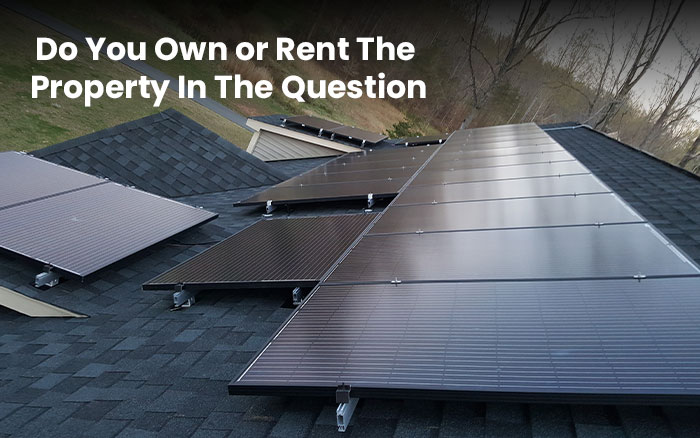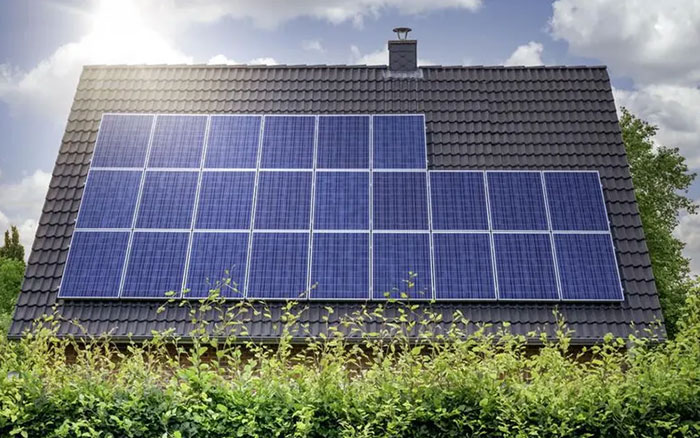5 Principal Aspects of Solar Panel Evaluation
While solar has many benefits but not everyone should utilize it. Before you purchase an DIY Solar Kit, first ask yourself if your home would be suitable for a solar setting.
There are a few requirements you'll need to meet in order to make solar a good investment. for your business or home. In this post, we'll discuss the factors you need to consider when conducting a thorough solar panel assessment.
Follow These 5 Solar Panel Evaluation Guidelines

Here are the most important aspects to consider when deciding if your home is suitable for solar power or not. When all four elements are covered, you'll be able to get an idea of whether solar panels are suitable for your home or not.
Do You Own or Rent The Property In The Question.

Our guideline also considers whether you own or lease your property?
Solar energy systems are primarily accessible when you own your own home, but renting makes going solar more difficult. Since tenants are typically responsible for their electricity bills on their own, the savings generated by solar don't offer their landlord any motivation to purchase these systems.
The power of solar panels has been demonstrated to boost property values by 3%. There is no guarantee that homeowners can recoup all their investment costs when installing solar panels.
Once you own the home you have envisioned, it will be time to make changes. You will not only reap savings from lower electric bills every month. However, solar panels in Delaware could even boost their value when they are put up for auction later - clearly making solar a wise investment that will pay dividends for homeowners who have access to grids for utilities
Renters needn't worry about it. Community solar programs exist specifically to make solar accessible to renters. Community solar power allows people to invest in solar power at a lower price than they would pay for utilities. Community solar is an alternative to power from utilities.
However, If you own your house, keep studying to find out the things to take into consideration when evaluating solar panels.
Is your space suitable for Solar Power System Installation (Roof or Ground Mount)?

Solar panels are most efficient when they are pointed directly at the sun. Make sure that the solar panels can receive direct sunlight during the Arise solar panel evaluation process.
The majority of solar panels for residential use in the United States are constructed on rooftops facing toward the south. However, the East and West-facing arrays are equally effective. North-facing arrays aren't as effective because they reflect directly from the Equator (where the sun travels every day).
A solar array facing to the south will produce the most kilowatt-hours (kWhs) because of the direct sunlight exposure. But, you may be able to get more value from your panels by orienting some or all to the West instead. At peak times - usually from 5-9pm - when people return from work and school, some utilities charge Time of Use (TOU) rates. You could save money if you are facing your solar panels towards the West during the day when the rates are highest.
Solar panels on your roof can generate sufficient energy if you have enough space for them.
If solar panels on rooftops aren't a good fit, ground mount systems are another option. While they do take up larger areas on your property, they permit you to modify your system in any direction that's most appropriate for your needs.
Before you decide to go solar, make sure that your roof can accommodate the array.
Solar arrays are built to last for 25+ years. Before you invest in one, consider whether the condition of the roof is suitable for the weight of such a system. Home builders who have recently built homes often overengineer them to be able to handle the additional weight of solar power systems without having to reinforce the roof material. If this is the case with you, chances are that your roof is sturdy enough to serve as the foundation of your system.
Suppose the roof on your home has been through some rough times. In that case, A structural engineer can assess it and suggest whether replacing it is necessary prior to deciding on solar. The ground mount option could be a viable option when space permits
Are Solar Panels Blockable by Shade or Obstructions?

Solar panels are most effective when they are in direct sunlight. The efficiency of your solar panels may be limited by chimneys, trees, or other obstructions. Partial shading scenarios like the one above can be assisted by microinverters and PV optimizers.
In your evaluation of the site, Choose a building site with the most sunlight feasible. Remember that shadows are likely to grow longer in winter; however, even when a shadow is just unable to reach your roof in the summer, it could end up extending over and reduce system output over time.
How much sunlight do you get daily?
There are construction sites that get more sunlight than others.

For instance, solar panels located in Arizona receive nearly twice the amount of direct sunlight and produce twice the amount of usable energy than systems installed in Minnesota for instance.
Grid-tie solar provides a great return on investment, no matter where it is placed in the US. However, the payback timeframes will be longer in areas that have limited sunlight exposure. To determine the amount of sun exposure your location gets, check out the maps of solar resources from NREL.
What Are Sun Hours (SH)
Sun hours" isn't just the quantity of hours of daylight in your area - rather, it is a precise measure that is one hour of sunshine that generates 1000 Watts of power for every square meter.
"Sun hours" refers to the length of days during which sunlight can effectively power solar panels generally, which is 4 to 6 sun hours in the majority of places. When more hours of sun come in, the panels require less energy to be put in place to attain energy goals and objectives.
Are you interested in understanding the impact of the sun's availability on the size of your solar system? Follow our step-by-step guide to the proper size of the solar energy system!
